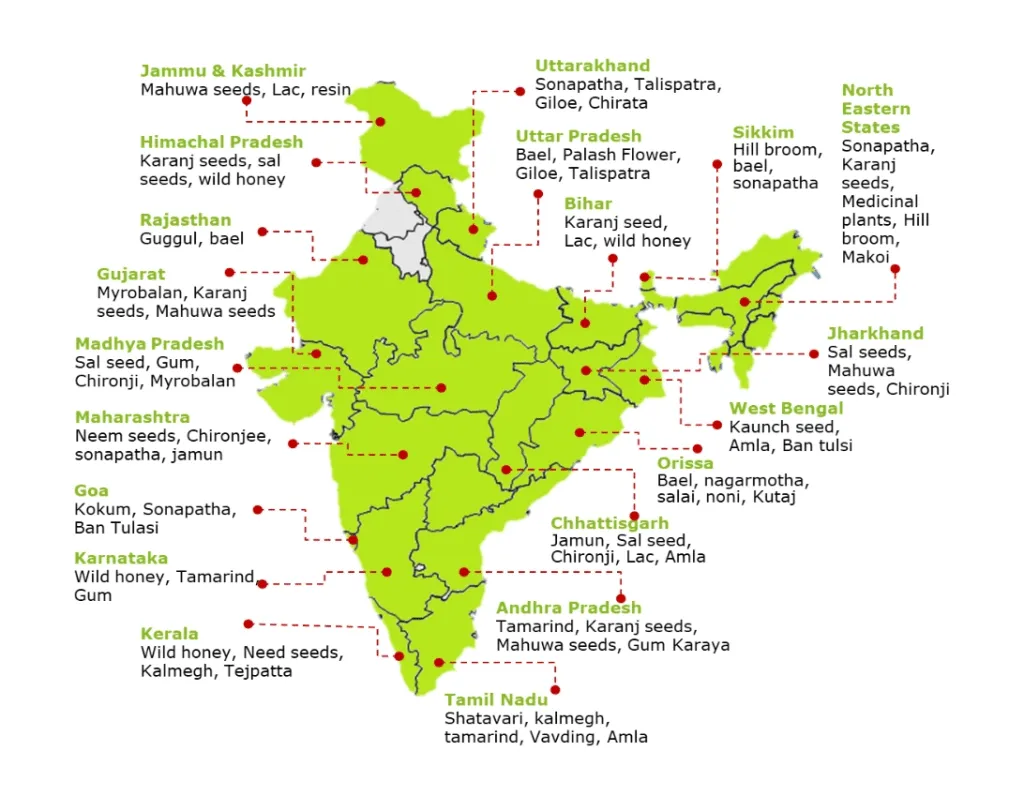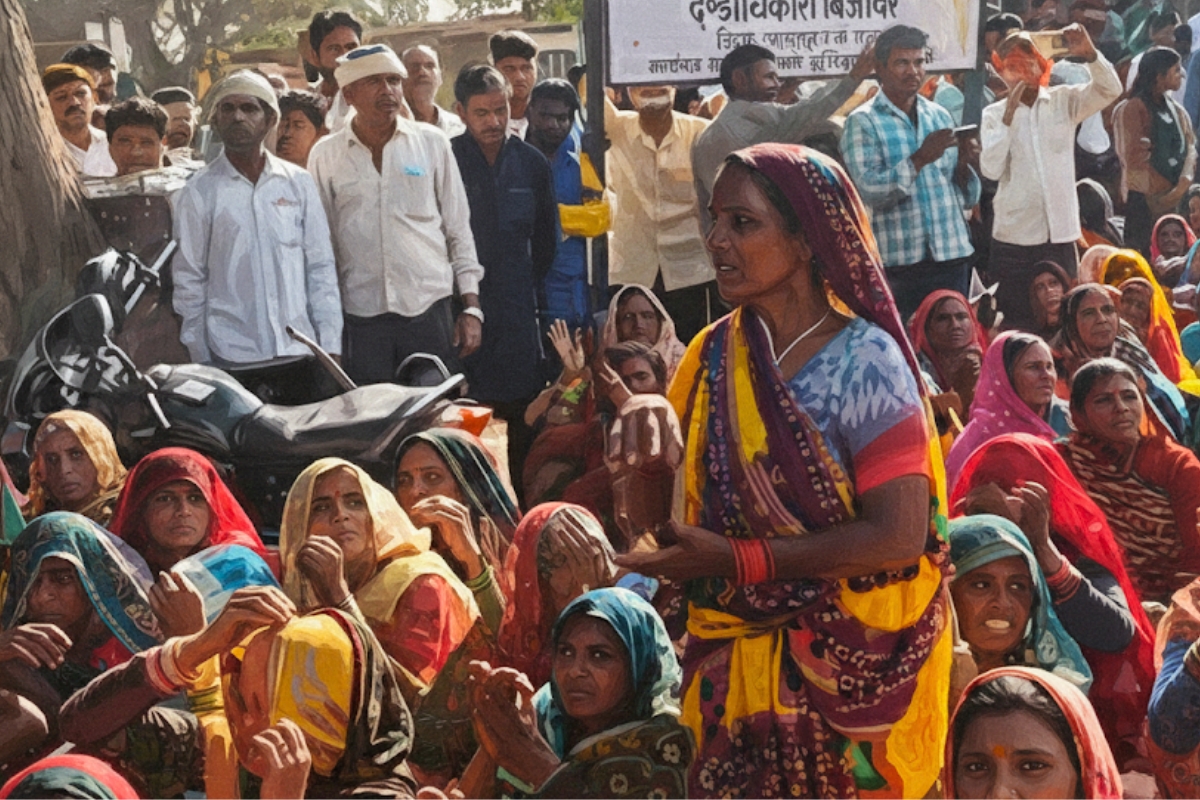For remote forest communities, forests have long been essential for survival and livelihood, providing sources of domestic energy and income.
Madhya Pradesh is a state rich in tribal populations and forest resources, including the Hoshangabad Forest Division in the Narmadapuram district. The division consists of nine forest ranges, with Itarsi being particularly vulnerable to forest fires.
The Itarsi and Sukhtawa forest ranges provide a variety of non-timber forest products (NTFPs) that are important to local and tribal communities. These include items such as fuel wood, mahua flowers, mahua seeds (gulli), achhar (chironji), tendu leaves, saaj, amla, karva chirag, beej, safed musli, ashoka bark, and semal cotton.
In India, scheduled tribals collect non-timber forest products (NTFP) worth Rs. two trillion annually, but lack an organised approach to realise the true value of their products.

NTFPs are a primary source of livelihood for around 90% of the 104.3 million tribal population residing in rural areas. The MSP scheme, which provides a safety net for tribals, needs to evolve, claim experts.
In 2018, Prime Minister Narendra Modi launched the Pradhan Mantri Van Dhan Yojana to address gaps like the shrinking area of NTFPs and inequitable trade mechanisms at the “primary haat bazar level.” Tribal gains are reaped by a long chain of middlemen.
Impact of non-tribal middlemen
However, the arrival of non-tribal middlemen in the NTFP sales committees has created a major problem for tribal peoples, resulting in lower prices and increased competition between them. As a result, many tribal families have moved to nearby cities in search of work, leaving behind their traditional ways of life.
During a recent visit to the Itarsi and Sukhtawa forest ranges, the author interacted with more than 100 families who shared their experiences of selling NTFPs to intermediaries offering lower prices. Tribal people have no choice but to sell their produce to middlemen as there are no suitable markets available nearby.
The lack of local government control of NTFP sales has also allowed intermediaries to establish a monopoly on the market. Tribal people have protested against this, but the temporary price increases have not been enough to address the underlying problems.
The lack of knowledge of NTFP collectors about the market has also contributed to their exploitation by intermediaries. The state government has taken some steps to address the problem, but more needs to be done to raise awareness and provide tribal people with adequate market access.
The situation calls for a geographic planning approach that takes into account the needs and challenges of tribal communities in establishing markets and storage facilities for NTFPs. Effective monitoring and verification of NTFP removal from the forest ecosystem is also crucial to ensure sustainable economic development for indigenous peoples.
FAQs
Non-timber forest products (NTFPs) are goods and services obtained from forest ecosystems that are not derived from timber, but have important social, cultural, and economic values.
The wide variety of NTFPs includes mushrooms, huckleberries, ferns, transplants, seed cones, pine nuts, tree nuts, moss, maple syrup, cork, cinnamon, rubber, wild pigs, tree oils and resins, and ginseng.
Keep Reading
- Srinagar’s waste crisis: Experts warn city will become a trash city in 5 years
- E-Rickshaws Are Popular In Assam But Maintenance Is High
Follow Ground Report for Climate Change and Under-Reported issues in India. Connect with us on Facebook, Twitter, Koo App, Instagram, Whatsapp and YouTube. Write us on GReport2018@gmail.com.









